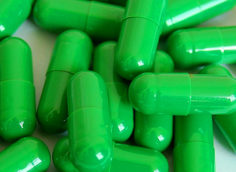When I first got interested in lifting and bodybuilding I read stories about professional bodybuilders and their tackle boxes full of supplements and vitamins. Most notably, Skip La Cour would keep one in the trunk of his car. When he left the gym he'd open his trunk and go through a post-workout ritual of pill popping, including vitamins E and C.
With a physique like Skip's, it would be hard to question his methods, but what if his post-workout E and C supplementation was actually hindering potential results and decreasing his insulin sensitivity?
One of the benefits of training is that it increases insulin sensitivity. Basically, when your insulin sensitivity is good, nutrients are better used to build muscle and not stored as body fat.
In one study, a group of exercise physiologists set out to examine how supplementing with vitamin C (1000mg) and vitamin E (400 IU) affected the post-workout boost in insulin sensitivity. Forty young men exercised five days a week (50 minute sessions including cycling and circuit training) for four weeks. The addition of vitamin C and E supplementation in that group completely eliminated the beneficial insulin-sensitizing effects of exercise!
With further investigation it seems that the post-workout increase in reactive oxygen species (ROS) – which is blunted by C and E supplementation – is a necessary phenomenon for increasing insulin sensitivity. The argument for the temporal benefit of ROS post-workout is strengthened by the fact that long term antioxidant supplementation has been shown to increase insulin sensitivity.
If you're looking for an extra potential edge, then avoid antioxidant supplements and high antioxidant foods around and directly after your workouts. This will allow for the natural post-exercise rise in ROS and improvement in insulin sensitivity.
- Ristow M, Zarse K, Oberbach A, et al. Antioxidants prevent health-promoting effects of physical exercise in humans. Proceedings of the National Academy of Sciences of the United States of America 2009;106:8665-8670.
- Head K. Study suggests antioxidants inhibit exercise-induced insulin sensitivity. Alternative medicine review 2009;14:99-102.





